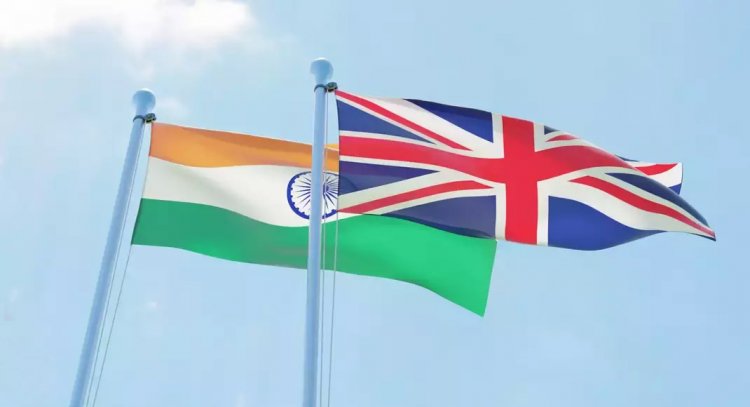India — UK: Possibilities of a New Alliance
STORIES, ANALYSES, EXPERT VIEWS

Britain’s ties with India have never looked as promising as today. But the popular narrative on bilateral relations remains mired in the past, writes C Raja Mohan (director, Institute of South Asian Studies, National University of Singapore and contributing editor on international affairs for The Indian Express). “Delhi’s foreign policy community can’t shake off the Pakistan prism in viewing London. To be sure, London’s advocacy of Pakistan has always irritated Delhi……"
The Narendra Modi government is however, “far more self-assured in dealing with Britain as an equal rather than a former ruler…….Delhi recognises the enormous strategic possibilities with Britain and is willing to invest political capital to build on those synergies……Delhi is betting it can reduce the traditional negative elements in the engagement with the UK…..”
Possibilities in technology partnership
Conscious of Britain’s enduring global salience, External Affairs Minister Subrahmanyam Jaishankar has often highlighted Britain’s continuing weight in the world as the fifth-largest economy, a permanent member of the UN Security Council, a major financial centre, and a leading hub of higher education and technology. Britain also enjoys a global maritime reach and a measure of political influence across the world.
But “it is in the technological domain that the prospects are immense but under-explored. Some of those possibilities for partnership with India will be highlighted this week when Prime Minister Johnson addresses Carnegie India’s Global Technology Summit convened annually in partnership with the Ministry of External Affairs.”
Only a few nations, argues Mohan “have laid out ambitious policy goals in harnessing the unfolding technological revolution. The UK is one of them, but there is insufficient awareness in India’s strategic community of the British moves to put science and technology at the very heart of its political, economic, security and foreign policies.” It has identified “eight broad themes stand out from these initiatives. First, leverage technology to ‘level up’ the regional and social inequalities in Britain. Two, ensure Britain’s privileged position as a leading science power. Third, focus on technological innovation to drive Britain’s future economic growth. Fourth, build internal security resilience against new technological threats. Fifth, modernise the intelligence apparatus with the help of new technologies. Sixth, integrate technology into the national defence strategy as new capabilities like AI become as consequential as battle-tanks, ships and fighter jets. Seventh, project technological power to counter malevolent actors in the international system.
Coalition of like-minded countries
“Finally, London wants to build a coalition of like-minded countries to reshape the global governance of technology. This includes strengthening technological ties with the traditionally close partners in the Anglosphere — US, Canada, Australia, and New Zealand — as well as other partners like Japan and India.”
All these elements in British policy, argues Mohan “mesh with India’s own economic, political, and security interests. The British technology initiatives are also aligned with the technological agenda of the Quad — or the Quadrilateral forum that brings together Australia, India, Japan, and the US.
Essence of the new alliance: “For Delhi, the essence of the new alliance with Britain is fourfold — generate domestic prosperity, enhance national security, climb up the global technology hierarchy, and contribute to the construction of a free, open, and democratic global technological order.”
MEA warning letter over Khalistan is fake
A letter, reportedly issued by the ministry of external affairs on November 8 being shared on social media platforms about a warning by MEA against anti-India activities and propaganda of Khalistani extremists around the world is fake, writes Shishir Gupta (Executive Editor of the Hindustan Times) quoting officials familiar with the matter. Officials said the letter was never issued. The alleged letter talked about measures to counter the threat posed by Sikh extremists.
Security agencies suspect the involvement of the Pakistani deep state in generating the letter as Pakistan has been fishing in troubled waters during the farmers' agitation through pro-Khalistan elements.
Last month, reports said an alert was issued after an intelligence input said banned terrorist organisation Sikh for Justice (SFJ) can gherao the Parliament House and hoist the Khalistan flag on it.
In October, US-based Sikhs for Justice organised a so-called referendum to decide whether Khalistan should be carved out of Punjab. The SFJ called all Sikhs above the age of 18 to vote in the referendum held in Westminster.
















